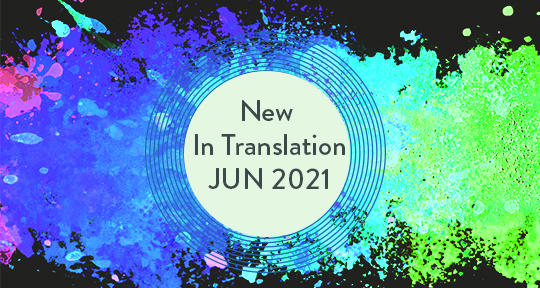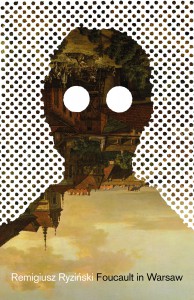This week, our editors-at-large report on paper shortages, literature prize longlists, and efforts to deconstruct the writing workshop. Read on to find out more!
Julia Sherwood, Editor-at-Large, reporting on Slovakia
Over the past year, Slovakia has not escaped the paper shortages that have affected the publishing industry all over the world, increasing printing costs and extending production times which, in turn, led to fewer titles being published. All this is likely to push up the price of books, in some cases by as much as 10-20 per cent, making Slovak readers, who already tend to spend less on books than their counterparts in many other European countries, even more reluctant to buy new works of literature, particularly by Slovak authors.
On 9 March, the longlist of Slovakia’s most prestigious literary prize, the Anasoft Litera, was announced. The eclectic mix of nominations includes new works by four previous winners, two of them past Asymptote contributors: Šesť cudzincov (Six Foreigners, excerpt here) by Marek Vadas, and Balla’s ‘polyphonic novel’ Medzi ruinami (Amidst the Ruins), as well as Stanislav Rakús’s Ľútostivosť (Mournfulness) and Ivan Medeši’s Vilkovia (Two Vilkos). The longlist features two other previous Anasoft Litera nominees: Ivana Dobrakovová for her latest novel Pod slnkom Turína (Under the Sun of Turin) and Vanda Rozenbergová with Zjedla som Lautreca (I’ve Eaten Lautrec), and two further women writers, Ivana Micenková with Krv je len voda (Blood Is Only Water) and Nicol Hochholczerová with her taboo-breaking debut Táto izba sa nedá zjesť (This Room Is Inedible). Another debut, Lukáš Onderčanin’s Utópia v Leninovej záhrade: Československá komúna Interhelpo (Utopia in Lenin’s Garden: The Czechoslovak Commune Interhelpo), is the first book of literary reportage to make it onto the longlist, while Arpád Soltész’s thriller Zlodej (The Thief) is the second genre novel in the prize’s history deemed worthy of inclusion among the top ten titles.
On 17 March the town council of Kremnica, a medieval gold-mining town and site of the world’s oldest still-working mint, unanimously approved an application to set up the first European Translators’ House in Slovakia. Named Zechenter House after the doctor, travel writer, and journalist Gustáv Kazimír Zechenter Laskomerský (1824-1908), it is expected to open its doors in two year’s time. The organisations behind the initiative are SOS Kremnica, a local NGO for the preservation of the town’s crumbling architectural heritage, and Mona Sentimental, run by translators Renáta Deáková and past Asymptote contributors Eva Andrejčáková and Gabriela Magová.





